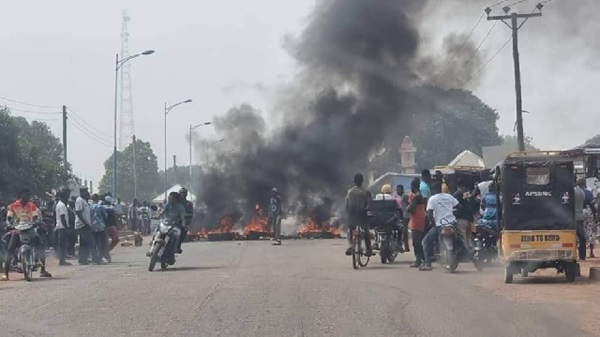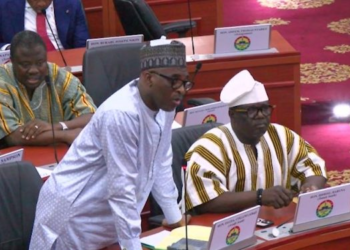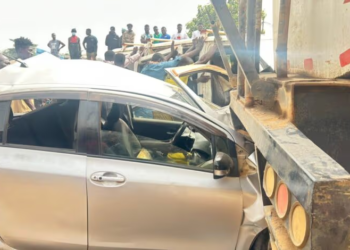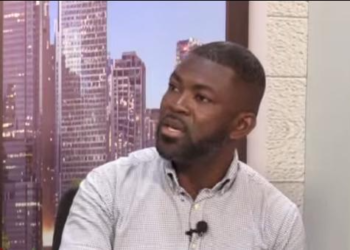The situation in Bawku, a town once marked by its vibrant economy, has taken a sharp turn for the worse in recent days, with killings and violence once again seizing the area.
In an emotional and heart-wrenching delivery, Apibire Major, ABC News GH’s Upper East-Bolga correspondent, called for an immediate and improved intervention to address the rapidly deteriorating security situation in the region.
“When you look at Bawku currently, it claims to be peaceful and calm, but on the ground, it is not peaceful,” Major said, describing the conflict-stricken town, where a renewed surge of violence has left residents in constant fear.
“The place is not peaceful at all; there is a fire on the mounting,” he added, emphasizing the volatile nature of the situation that continues to escalate daily.
Major expressed deep concern over the state of affairs in Bawku, stating, “The place is very, very dangerous, and we are calling on authorities to do more.”
He painted a bleak picture, claiming, “Bawku, the whole of this week, has not been peaceful.”
The renewed series of killings has claimed multiple lives, including that of two young police officers on April 13, further exacerbating the already dire security concerns.
Major also highlighted the absence of law enforcement presence in critical areas, revealing that police barriers along the Red Volta to Bawku Town were left unmanned, as officers fear attacks by the youth.
As the conflict continues to devastate Bawku, the toll on the community is immense. The protracted violence, which has spanned several decades, has already claimed over 300 lives since November 2021. The deep-rooted conflict between the Kusasis and Mamprusis has pushed the town into what many are now calling a “ghost town,” with hundreds of residents fleeing to neighboring districts in search of safety.
Local businesses, schools, health facilities, and essential services have all taken a major hit, as insecurity prevents people from carrying out their daily activities.
The most recent clash, on April 9, saw one person killed and several others injured in a violent confrontation between the youth and police personnel.
The violence even led to the burning of police establishments, including the official residence of the Divisional Police Commander, and the destruction of police vehicles. A police vehicle, registration number GP 925, was set ablaze during the riots.
Despite efforts by the Inspector General of Police (IGP), Christian Tetteh Yohuno, and his team to assess the situation and provide support, tensions remain high. In a statement, the IGP expressed condolences to the family of the deceased and vowed to continue working with various stakeholders to ensure peace in the region.
But the situation is dire, with schools closing, businesses halting, and public services disrupted. The Ghana Education Service reports that nearly 500 teachers have fled the Bawku Municipality and Pusiga District since the conflict reignited, worsening an already strained educational system.
A disturbing trend has also emerged in the transport sector, where the number of people traveling to Bawku has dropped significantly. Seidu Wahabu, a minibus driver, shared his frustrations, noting that only a few minibuses now ply the Bolgatanga-Bawku route, further paralyzing local commerce.
In the health sector, institutions like the Bawku Presbyterian Hospital are struggling to survive. The once-bustling facility is now on its knees, unable to provide adequate care to the people it once served, as many locals now seek medical attention in neighboring towns.
Bawku’s tragic transformation is highlighted by its impact on women and children, who are bearing the brunt of the violence. Education, healthcare, and daily life have all ground to a halt, leaving an entire community in anguish and uncertainty.
Member of Parliament for Bawku Central, Mahama Ayariga, condemned the police’s response to the violence but called for collaboration between law enforcement and local leadership to restore order. He emphasized that the solution lies in a more integrated approach involving traditional leaders such as Abugrago Azoka II, the Overlord of Kusaug.
In a community where the streets once buzzed with market activity, Bawku now remains a haunting reminder of what has been lost in the wake of conflict. The call for peace and security is louder than ever, but whether it will be heard remains to be seen.
By Ruth Sekyi

































